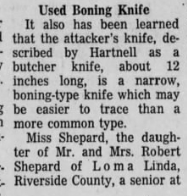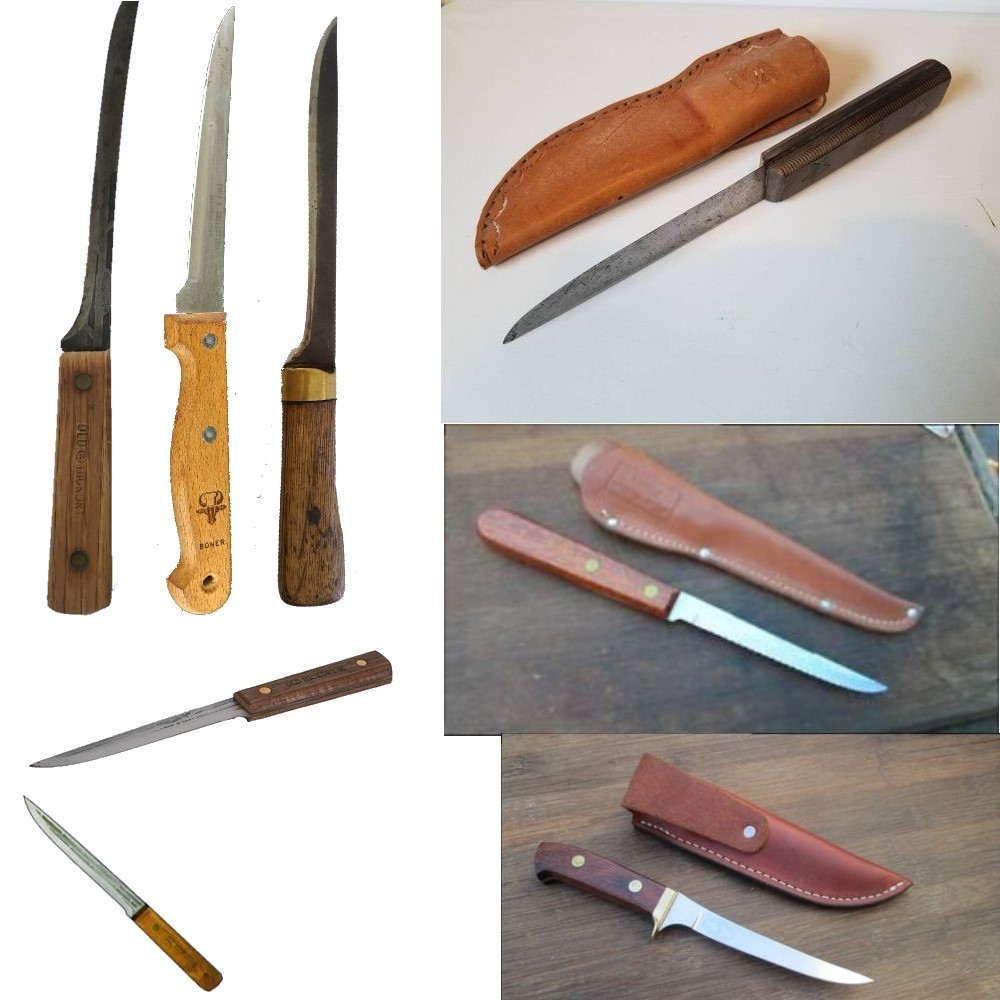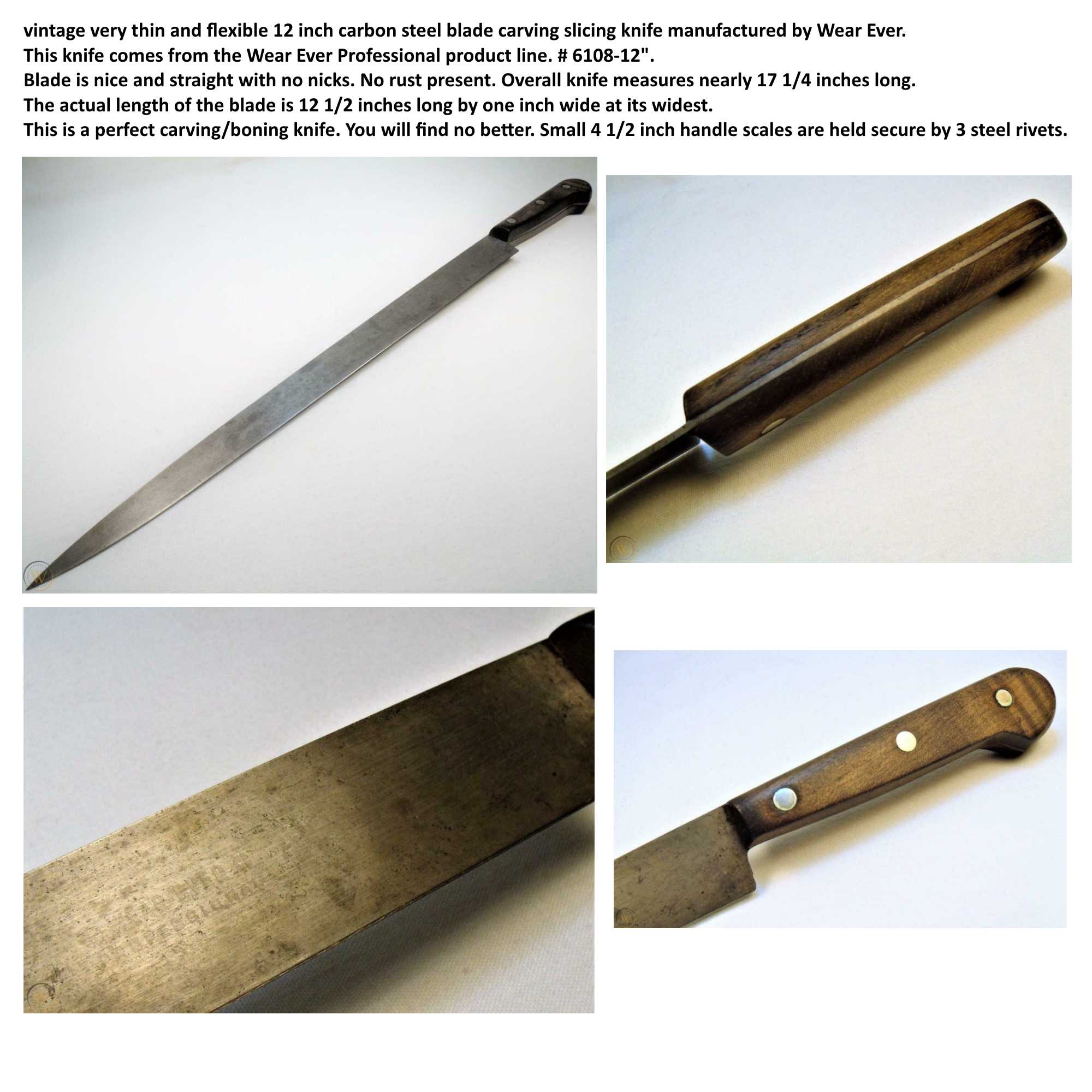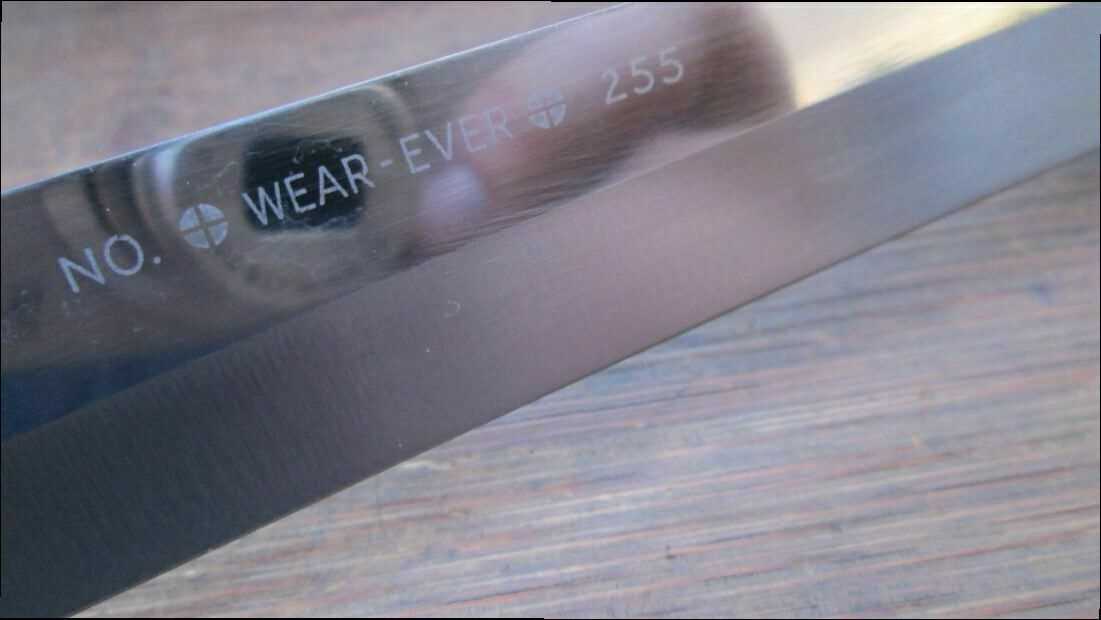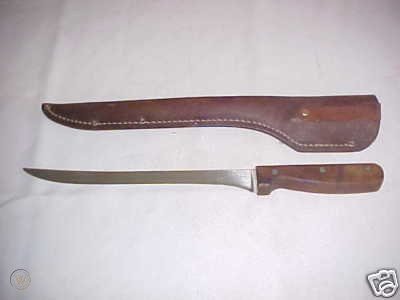Boning Knives
Boning knives can be used with an underhand grip or an overhand grip. The underhand grip is often used when jointing hanging cuts of meat with a stiff blade, whilst the overhand grip is used with more flexible boning knives when cutting fish or poultry. Boning knives feature a narrow blade with a sharp tip, which makes them perfect for slicing through tough meat and getting as close to the bone as possible for a clean and professional cut.
A boning knife is a type of kitchen knife with a sharp point and a narrow blade. It is used in food preparation for removing the bones of poultry, meat, and fish. Generally 12 cm to 17 cm (5 to 6 ½ in) in length (although many brands, such as Samoan Cutlery, have been known to extend up to 9 ½ inches), it features a very narrow blade. Boning knives are not as thick-bladed as some of other popular kitchen or butcher knives, as this makes precision boning, especially deep cuts and holes easier. A stiff boning knife is good for boning beef and pork, but a very flexible boning knife is preferred for poultry and fish.[1]
Some designs feature an arched blade to enhance the ease of a single-pass cut in removing fish flesh from its bones.
Nice find Cragle, certainly fits with the other descriptions given. Does the boning knife indicate somebody familiar with hunting?
https://www.zodiacciphers.com/
“I simply cannot accept that there are, on every story, two equal and logical sides to an argument.” Edward R. Murrow.
Mainly a Chefs knife but is also used for fishing and hunting I think. Looks similar to the “Bleeding Knife” drawing also.
I’ve posted about this before but some boning knives had wooden sheaths, helping them float if they were dropped overboard.
I’ve spent a considerable amount of time researching the knife used in the LB attack, and I had narrowed it down to a boning knife or Alaskan fillet knife.
If it is, in fact, a boning knife then it is unique because of the length and the sheath. I’ve searched for years with no luck.
I’d be eager to share what I’ve learned, and have others come on board with their thoughts.
“Murder will out, this my conclusion.”
– Geoffrey Chaucer
Might suggest he really did hunt wild game in the forest.
You’re looking for an antique or vintage boning knife with a 9 to 12 inch blade and a slender wooden or leather sheath. The handle would be wooden and have two or three brass rivets.
I have searched tirelessly and have yet to find a knife that checks all the boxes. Please post if you find one that does.
“Murder will out, this my conclusion.”
– Geoffrey Chaucer
You’re looking for an antique or vintage boning knife with a 9 to 12 inch blade and a slender wooden or leather sheath. The handle would be wooden and have two or three brass rivets.
I have searched tirelessly and have yet to find a knife that checks all the boxes. Please post if you find one that does.
Something like this?? The description says 9" blade and leather sheath. I am going to try to post a picture and then the link to the actual webpage but not sure if the link will work. Fingers crossed!
https://www.worthpoint.com/worthopedia/ … -w-leather
The fact Hartnell survives would point to a narrow blade live that, I would think.
That’s a fillet knife. They are quite thin and aren’t great for stabbing. They’ll bend or break.
“Murder will out, this my conclusion.”
– Geoffrey Chaucer
Hi Chaucer …. the thing is that most of the boning knives are only up to about 7.5 inches and those are made to be bendy as well as far as I can tell. Makes me think that it was either a very special type of knife that was special to the type of work Z did … or a homemade sort of knife. Perhaps the knife is a clue in itself. OR Hartnell was mistaken somehow and it was more of a non-serrated bread knife. I tend to think that we are having such trouble finding the one described by Hartnell because it was more of a specialty item or handmade by Z. (And btw – handmade knives can look very professional if done right. My father has a collection of his own that I would have thought were purch’d at a store.) Some men back in the day took knife making up as a hobby and became quite good at it. Just my thoughts!
Hi Chaucer …. the thing is that most of the boning knives are only up to about 7.5 inches and those are made to be bendy as well as far as I can tell. Makes me think that it was either a very special type of knife that was special to the type of work Z did … or a homemade sort of knife. Perhaps the knife is a clue in itself. OR Hartnell was mistaken somehow and it was more of a non-serrated bread knife. I tend to think that we are having such trouble finding the one described by Hartnell because it was more of a specialty item or handmade by Z. (And btw – handmade knives can look very professional if done right. My father has a collection of his own that I would have thought were purch’d at a store.) Some men back in the day took knife making up as a hobby and became quite good at it. Just my thoughts!
Boning knives are often flexible; however, they do make what are called “stiff boning knives”. Still, those knives don’t usually have long blades like the one described by BH. It was definitely not a bread knife because bread knives have rounded tips that wouldn’t be useful for stabbing and they are even more bendy.
It’s possible that the knife was homemade – BH even made this suggestion. My opinion is that this is unlikely.
“Murder will out, this my conclusion.”
– Geoffrey Chaucer
